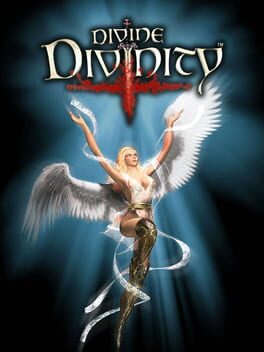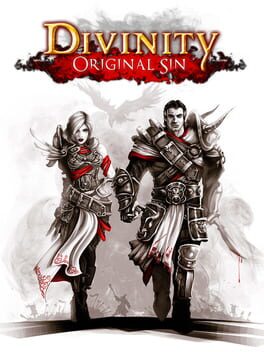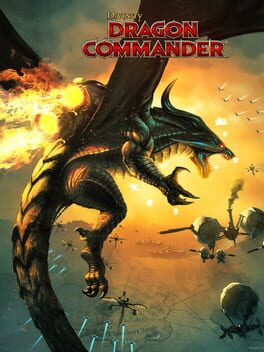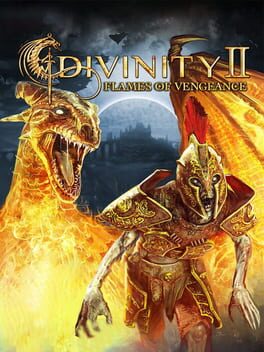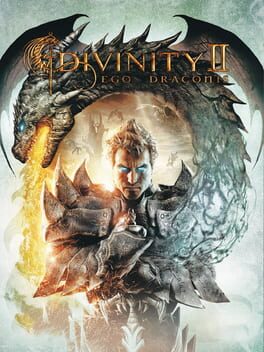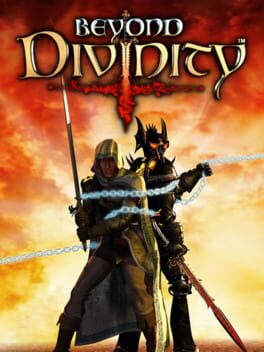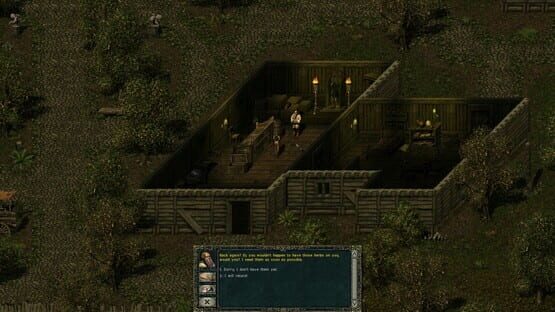

Listed among the "Top 100 PC Games Of All Time" by PC GAMER (2012), Divine Divinity is an epic role-playing game with hack-and-slash action, offering a huge world to explore and thousands of items to investigate, trade and use. Key Features: An RPG of Epic Proportions An adventure that will last you over 100 hours, filled with tons of non-linear quests and offering an enormous world to explore! Classless Character Development Decide what kind of character you want to be! Start out as a warrior, wizard or survivor – each with his own unique ability – then freely choose between 96skills, regardless of your class. Hack & Slash with a Twist Dozens of different enemy types and obliterate them in visceral, fast-paced combat. Things getting a bit hectic for you? Then pause the game at will, and take your time to look over the battlefield - or drink that much needed health potion. Interaction Galore Enormous amount of objects that can be investigated, traded, used and combined. Found some empty flasks and picked up some colourful mushrooms? Create potions! Obtained some vile-smelling poison? Daub it on your blade or arrow tips: your foes won't know what hit 'em! Award-winning Soundtrack Dulcet melodies composed by Kirill Pokrovsky, the two-time winner of IGN’s "Outstanding Achievement in Music” award.
Also in series
Reviews View More
Visualmente, o jogo possui uma ótima direção de arte e uma identidade visual muito forte, que conta com o charme dos RPGs com visão isométrica do final dos anos 90 e inicio dos anos 2000. Por fim, cabe mencionar alguns defeitos do mesmo, sendo eles relacionados principalmente a problemas de compatibilidade com hardwares mais modernos, o que ocasionou, na minha experiência, eventuais crashes e problemas com baixo FPS no jogo. Há também alguns bugs relacionados aos NPCs do jogo, como o seu desaparecimento, e que, por vezes, acabam travando certas quests do jogo. Felizmente não houve nada que impedisse o meu progresso na quest principal ou, sendo sincero, na esmagadora maioria das quests do jogo, mas esse tipo de problema deve ser mencionado. No mais, Divine Divinity é um ótimo jogo, clássico absoluto do gênero. Recomendação fortíssima!
Você entra em uma Dungeon...
Você vê dois Esqueletos conversando entre si...
Eles têm uma crise existencial e simplesmente se desmontam...
Você segue em frente enquanto lembra do mago da batata...
8.8/10 ou 4/5... Se esse jogo fosse um pouco menos bugado, tornaria a Larian famosa muito antes do que de fato aconteceu...
Sim, essa Review é mais ou menos como a review de MOH: Above and Beyond, mas muito menor, e apenas pela brincadeira mesmo... Eu joguei esse game aqui a bastante tempo, e esqueci de por ele aqui... A próxima review que vem por aí é de um tal de Ys VIII: Lacrimosa of Dana... Voltando para a saga dos JRPGs... E que jogo que me recomendaram diga-se de passagem... Daqui a pouco eu falo mais dele
This review contains spoilers
Divine Divinity is a glorious game. In the core, it is your standard RPG, you level up, collect loot, gather gold and experience and improve your skills. What makes this game unique however, is the really advanced mechanics and interaction with the world around you. This makes it stand out from any other RPG of that era.
The Divinity series are known for its strong story and plot and, of course, it all started here. Evil spreads across the land and the Black Ring tries to destroy the Dive Council of Seven. You are “Marked” and evil will not stop hunting you forever. You need to gather the Council and become Divine in order to destroy the evil that plagues the land. Meanwhile a big ass war is going on between every race in the kingdom, like the Elves, Dwarves and the Orcs. It’s the short version but it is solid.
You start in a quiet village of healers called Aleroth, in the land of Rivellon. From here, you begin your journey to become the Divine and join the Divine Council of Seven. On your journey, you travel to towns, villages and big cities, where everyone has problems and if you want, you could help them out for some extra gear or experience.
And that is the key sentence here: “If you want.” This game lets you do whatever you want, whenever you want. You are completely free to go wherever you want and can choose in which order you complete the game. This has however, some downsides. If you kill a certain NPC (which you totally can do), it might lock/destroy a quest you can do later on. If you travel to that small cave on the left bottom side of the map, you might get your ass handed to you by twenty hungry trolls, while you are not prepared for this.
The graphics in Divinity are stunning. More specifically, the environments and the attention to detail to the flora, fauna, buildings, caves and farmlands. The fight animations and spell casting are beautiful and even today, they are just fine to look at.
The music is glorious. It does not have adrenaline pumping fight tracks but rather calm, medieval themed ambient music that will change according to your current location. This music is perfectly fitting for this game and it enhances the feeling of playing a fantasy themed RPG. The music is greatly improved in the later installments of the Divinity series.
What makes this game unique for me, is the way you can interact with everyone and everything, like I mentioned. You can pick up a piece of trash, keep it in your inventory or place it somewhere else. You can light a candle, which serves no purpose, but you can do it. You can murder everyone you see, although this has consequences in the game later on. You really need to be tactful, think ahead and analyse the risks when performing certain tasks or making certain decisions in Divine Divinity. This makes the game so great.
But the mechanics do not stop there. You can lock pick doors, make potions from mushrooms and flowers you find out in the wild, you can repair your own gear if you have the skill for this, and the list goes on. You can develop your character however you want and add the specialties of your choice to it. Want to be a warrior who can brew potions and lock pick doors? No problem. Want to be a mage with heavy Armor and mad blacksmithing skills? You got it.
The controls and interface can be a little confusing and take some time to get used to. It is not your straight forward Diablo interface.
The only issue I had with Divine Divinity, was its cryptic nature. Yes, this adds to the experience of the game and let you explore freely and figure it out for your own, but sometimes the information is so vague for a quest, that you really have no clue where to start looking. To make matters worse, sometimes you murdered someone that was suppose to help you complete that quest or was a key element in it, and you blew your shot. A lot in this game is connected one way or another so you need to be very careful when performing a certain action. But when you make notes and write down some of the hints and tips given to you by the quest giver, (but did not appear in your quest log) you should be fine most of the time.
In the end, Divine Divinity is one of those games that got my deepest respect and I really enjoyed playing it. It might even be in my top 10 best games ever played.
Pros:
+ A really nice soundtrack. Just a very fitting and good sounding music, which I really like and have added it to my watchlist to listen to on YouTube.
+ Good story and humour. The story is a typical your-are-the-chosen-one tale, with some humourous remarks here, which makes it seem as the story should not be taken too seriously, but still interesting enough.
+ Quests and interactions. The game really makes you think of how to complete the quests, and which approach to choose, which is, unfortunately, a lost concept in most modern "RPGs" (Witcher 3, Fallout 3-4, etc.). Some interactions, where you have to move objects like barrels, paintings, boulders was also something I liked, since it made me want to explore the world.
Neutral:
= Combat and overall balance. Enemies are either complete pushovers and die easily to your attacks, or they have insane resistances, and barely take damage from fire, electricity, spikes, poision and don't get frozen. Skills seem to be implemented poorly, most skills are completely useless, and even Divine skills, which are supposed to be your endgame tools, are absolutely useless too. Also, some bosses are completely broken, and require immense amount of reloads and potions to beat.
Cons:
- Some dungeons are just too big and boring. This can be especially seen in the endgame, where you just have to cut through same enemies through 5 maze like locations. Or you can just use a transformation spell or statue and run past, which I did.
- Bugs. Some quests are bugged, making them impossible to complete because you completed them in the wrong order. Also I had some rendering issues, but it's probably because of compatibility, and simple restart of PC resolved that.
- Compatibility with the modern systems. I had to use community made tools to run the game, which is not that big of an issue, but still took me some time to figure out.
Overall, the game is really good, despite its flaws and age. Hopefully Divinity 2 will keep up the level of the first game.
